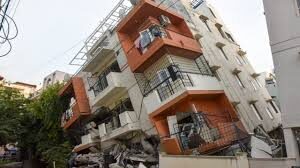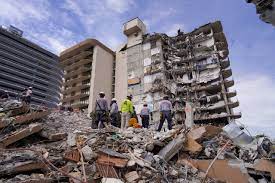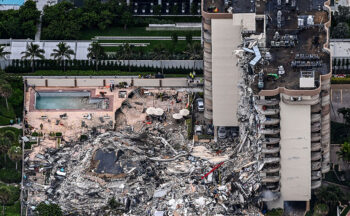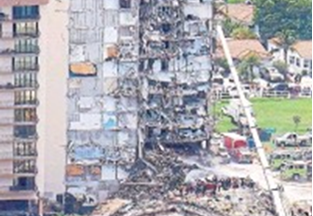 August 2023
August 2023
Buildings rarely collapse without warning.
The May 2023 collapse of a Davenport, Iowa residential building is the second avoidable disaster in recent memory. The mayor of Davenport claims “I don’t know that anyone can anticipate a building collapsing,“ yet many saw this coming.
A structural engineer documented a shaky wall. A masonry company refused to allow its workers onto the site. A city inspector threatened to close some units. Firefighters were asked to inspect the building, and residents had reported cracks in their floors and walls.
Many saw this coming but nobody ordered residents out, and it was only when a section of the six-story brick, steel and concrete building tumbled to the ground on the afternoon of May 28 that everyone seemed to connect the dots. Three men were dead, about 50 tenants were left homeless without their possessions, and the city was faced with one of its taller buildings at risk of crumbling in the heart of its downtown.
This was preventable. The owner of the building, the city, engineering companies and construction workers were aware. Yet nobody warned residents.
One resident reported the wall was bowing, window frame was pulling away from the wall, crumbling foundation and uneven floor. Management, after seeing the problems, responded “there are no structural deficiencies within the building’’ and “We have had the building approved by a structural engineer.’’
City officials knew about crumbling bricks and bulging walls since at least 2021, and threatened to close some units. In February 2023, one company informed the city about deterioration and said its workers would stay away from the site until dangerous conditions were fixed. That same month an engineering company undertook an emergency inspection and recommend needed work. A report that same month states “This will soon cause a large panel of façade to also collapse”. Days before the collapse, a masonry company was asked for a quote. That quote was deemed too costly in part because about $50,000 (US) was included to shore and support the building before workers would be allowed to enter the site.
Less than two days after the partial collapse, the city issued a fine for $300 for failing to maintain the building in a sound, sanitary or safe condition.
 Thus far, Ontario has been spared a similar tragedy. Yet some communities are moving in this direction and having to contend with problems relating to inadequate maintenance. Garage work gets delayed; elevators are not adequately serviced; water-related problems that include leaks, pressure and temperature abnormalities; and air quality concerns quietly go unaddressed as directors and owners accept underfunded reserve funds incapable of maintaining their home. When a problem can no longer be glossed over, it becomes an immediate concern and more money needs to be spent on repairs than would otherwise have been the case.
Thus far, Ontario has been spared a similar tragedy. Yet some communities are moving in this direction and having to contend with problems relating to inadequate maintenance. Garage work gets delayed; elevators are not adequately serviced; water-related problems that include leaks, pressure and temperature abnormalities; and air quality concerns quietly go unaddressed as directors and owners accept underfunded reserve funds incapable of maintaining their home. When a problem can no longer be glossed over, it becomes an immediate concern and more money needs to be spent on repairs than would otherwise have been the case.
Owners can pay now to properly fund their community or pay more later after dealing with inconveniences and costs that could have been avoided.







